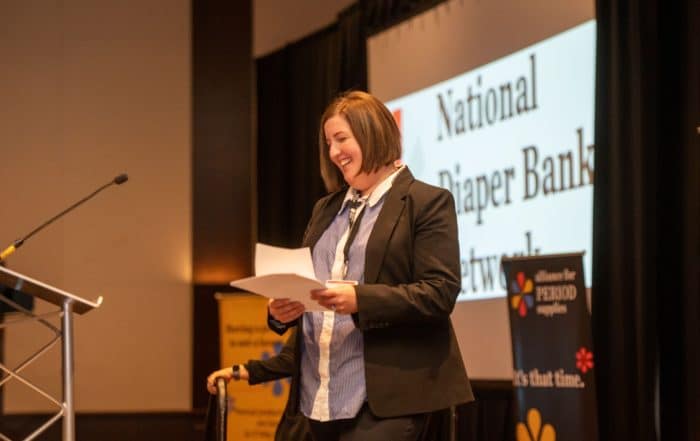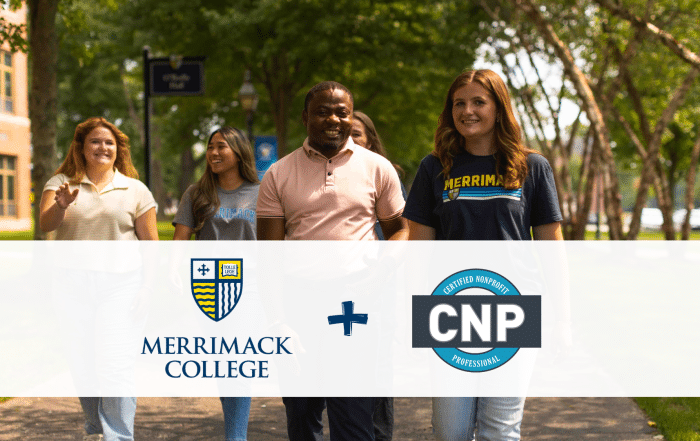As an organization that impacts many lives and communities, your nonprofit has a responsibility to form a team that can efficiently and effectively serve its beneficiaries and stakeholders. However, you can only cultivate a diverse and skilled team by making the recruitment process accessible to all, regardless of their abilities or background.
A key stage for many hiring processes is the interview stage, making it a good place to start revamping your overall hiring approach. In this guide, we’ll provide you with expert tips to transcend traditional recruitment practices and standards by adopting universally inclusive interview tactics.
1. Train Your Team on Implicit Bias
Everyone, regardless of their conscious values, has implicit biases. As the name of this term suggests, your team likely doesn’t recognize these biases, but they can significantly impact the hiring process.
However, with proper training and education, your team can learn to recognize and combat implicit biases before they affect your interviews. In your training, you should cover subjects like:
- What implicit bias is
- Why implicit bias matters
- How to recognize implicit bias throughout the interview process
To explore implicit bias further, have your team roleplay scenarios in which they express or receive bias in an interview setting. While effective, these situations can potentially get uncomfortable, so be sure to check in with your team throughout the training process and provide breaks when needed.
2. Use Tools with Bias-Blocking Tech
Though training can go a long way in helping your team recognize and address bias, you can take an extra step to further remove it from your recruitment process. Many modern recruitment software solutions can help you eliminate any identifying elements from candidate profiles that can trigger your hiring staff’s implicit biases. Lever recommends looking for an applicant tracking system (ATS) that offers:
- Automated scoring, which ensures your team evaluates all candidates objectively based on their responses to application questions and qualifications
- Blind recruitment features, which hide personal information like the applicant’s name and photo
- A standardized screening process, which ensures all applicants undergo the same vetting steps
These features can help your nonprofit advance only the most qualified candidates to the interview stage. Once you’ve determined who you’ll interview, you can continue to use this technology to take notes on each applicant’s interview, schedule interviews, and keep the process organized.
3. Design Accessible and Flexible Interview Options
To keep the most promising candidates engaged throughout the interview process, you need to make it accessible to all. You can do this by offering:
- Virtual interview options. While it might seem like a different age, it was only a few years ago when interviewing in person was the norm. However, with the advent of accessible technology and software, you can easily schedule and conduct interviews over a video call. This eliminates the need for inconvenient travel and allows candidates to participate from a comfortable location.
- Adjustable interview slots. Your candidates are likely quite busy between their job searches and personal obligations. Allowing them to pick the interview slot that works best for them guarantees they’ll have time to prepare and feel comfortable with the interview.
- Customizable interview setup. It’s important to keep the interview process as standardized as possible, but it’s also crucial to give candidates who need more support what they need. For example, if a skills test for the position relies on a visual assessment, be sure to allow candidates with visual impairments to use a screen reader or an interpreter.
These are only a few of the ways you can make your interview process more accessible. To determine the right adjustments based on your existing hiring process, JazzHR recommends surveying candidates about their experience and using their suggestions to make accessibility improvements.
4. Use Inclusive Language
Changing only a few words in your communications can make a big difference in the effectiveness of your interview process and talent acquisition strategy. Incorporating inclusive language into your interview materials can help you connect with more candidates and make them feel valued by your nonprofit. Make your interview language more inclusive by:
- Avoiding assumptions
- Respecting preferred pronouns and titles
- Using straightforward, gender-neutral, non-jargon terminology
- Restating questions in simpler terms, if needed
Besides changing your tone to be more inclusive, you should outwardly mention your nonprofit’s inclusivity efforts to gauge candidate attitudes towards it. For instance, you might simply mention how your organization doesn’t tolerate discrimination or that you allow employees to create affinity groups based on their ethnic, gender, or religious identity. Including these details can help both your team and the candidate determine if they’re a good fit for your company culture.
As you start building a more inclusive interview process for your nonprofit, remember that these general tips are just the beginning. To see true success with your organization’s recruitment efforts, play to your unique strengths and tie them back to accessibility.
For instance, you might have team members not directly related to the hiring process speak on your nonprofit’s commitment to inclusivity based on their own experiences. After all, the most inclusive solutions are based on your nonprofit’s makeup, so let your team and candidates take the lead.
Did you enjoy this story?
Get nonprofit tips and tools delivered right to your inbox by joining The Nonprofit Leadership Alliance Newsletter. Our bimonthly newsletter will make sure you know what’s happening with our network of social sector leaders.
It Takes a Village. Amy Faugas, CNP Is Strengthening the One We Have.
Written by: Miles Bilka, CNP, Marketing Manager, Nonprofit Leadership Alliance When families talk about diapers, they’re often talking about something much larger. Stability, health, or just the daily math of trying to keep a household afloat. For
Merrimack College Partners with NLA to Prepare Students for the Certified Nonprofit Professional (CNP) Credential
FOR IMMEDIATE RELEASE: Kansas City, Missouri - December 10, 2025 Merrimack College has partnered with the Nonprofit Leadership Alliance to prepare graduate students to earn the Certified Nonprofit Professional (CNP) credential, the only nationally recognized
4 Steps to More Powerful Visuals on Your Nonprofit Website
In today’s world, a nonprofit organization’s website is often its primary communication tool. With the power to reach and engage a local or global audience, a well-designed website can help further your mission, build your



